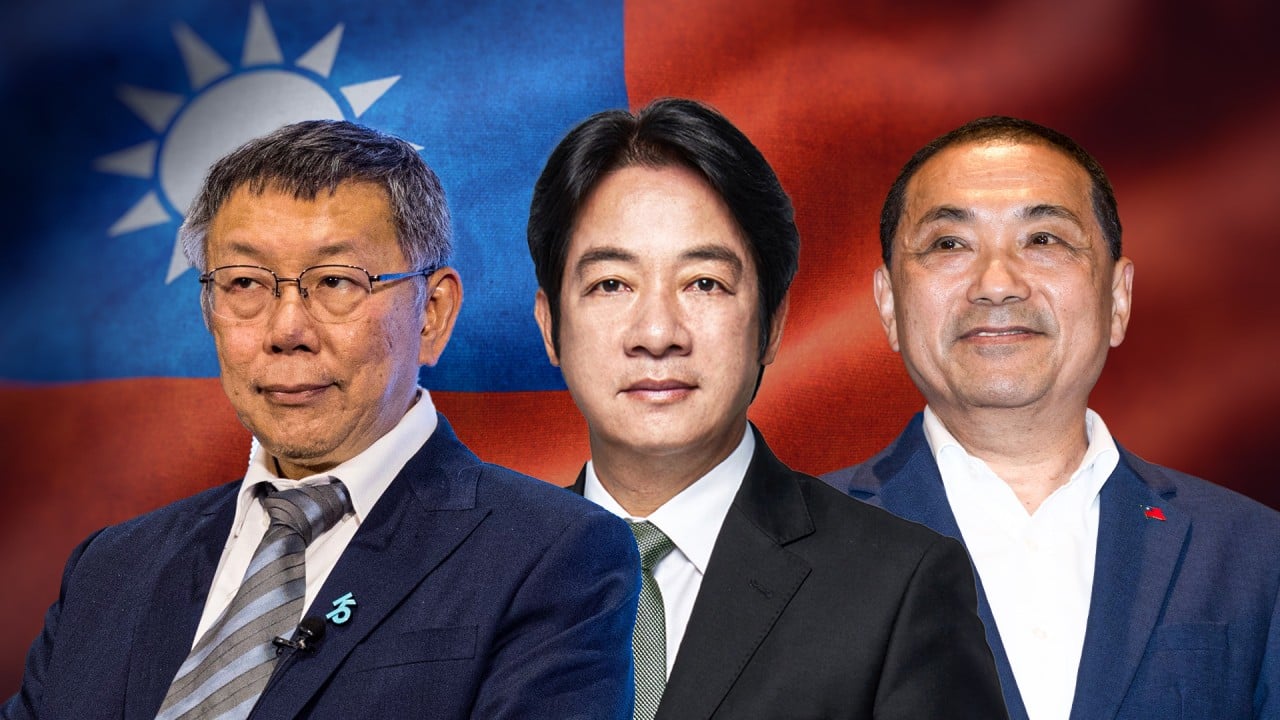
US, Chinese officials remain at odds over Taiwan during military talks, days ahead of election
- During Defence Policy Coordination Talks in Washington, Chinese officials urge US to stop arming self-ruled island
- US reaffirms support for its one-China policy at first meeting of its kind since Beijing suspended talks in 2022
China and the United States exchanged contrary views over Taiwan at a defence policy meeting that ended on Tuesday, days before the island’s voters select their next president and lawmakers.
At the Defence Policy Coordination Talks in Washington, Chinese officials urged the US to stop arming Taiwan and oppose its independence, while Pentagon officials said Washington was committed to its one-China policy, which requires the US government to sell arms to Taipei for the island’s self-defence.
Taiwan is a highly sensitive and persistent issue in US-China relations. Beijing sees it as a breakaway province to be reunited with mainland China, by force if necessary.
The US, in common with most other countries, does not recognise Taiwan as an independent state, but it opposes any attempt to take the island by force.
“The US needs to take seriously China’s concerns and do more to contribute to the development of the two militaries’ relationship,” the Chinese statement said.
Michael Chase, the US deputy assistant defence secretary for China, Taiwan and Mongolia, who hosted the meeting, underscored the importance of peace and stability across the strait, the major shipping lane that separates mainland China from Taiwan.
He also said both countries should keep military-to-military lines of communication open to prevent competition from turning into conflict, according to a Pentagon statement. Chase also discussed operational safety in the Indo-Pacific and said the US would continue to operate in areas allowed by international law.
Personnel aboard ships and planes of the US and its allies have complained about “unsafe” manoeuvres by the Chinese military in the Taiwan Strait and the South China Sea, over which Beijing lays vast claims.
The Chinese delegation told the US to downsize its military presence in the South China Sea and stop supporting “individual countries” in what Beijing sees as a “violation of its rights” and “provocation”.
“The US should fully recognise the root cause of safety issues in the air and at sea, and strictly restrain frontline troops,” it said.
The Chinese delegation was led by Major General Song Yanchao, the deputy director of the Central Military Commission’s international military cooperation office. The commission is China’s highest military command and is headed by President Xi Jinping.
Taiwan’s elections on Saturday will result in a new president, whose policy will shape US-China and cross-strait relations for the years to come.
He said at a news conference on Tuesday that if elected president, there was no need to declare independence because “Taiwan is already an independent country with sovereignty”.
Beijing’s diplomats and military officials have criticised the DPP multiple times in the lead-up to the election, and during Tsai’s tenure, for leaning towards independence.


